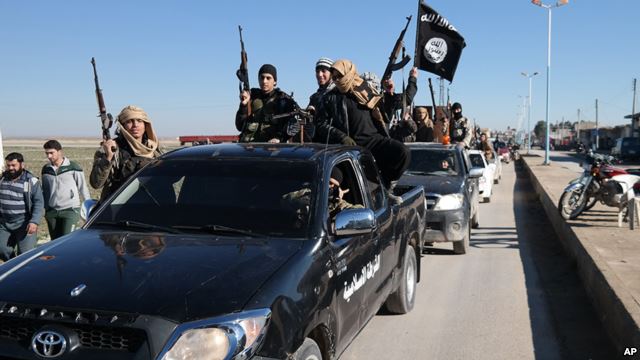The Islamic State has puzzled anti-terrorism analysts since its rise as a terrorist organization that controls large parts of Iraq and Syria: What is it about it that attracts so many young people from so many countries? And what makes them join it in countries like Bangladesh where, previously, few joined other militant organizations.
Recently, Bangladeshi police arrested a man in Banani, a posh area of the capital, Dhaka. Authorities said the suspect had selected 20 activists, including a teacher at an English middle school, to join IS in Syria and Iraq.
Earlier, police detained two other people on the same charges. One of them was an IT manager at a Coca-Cola subsidiary.
These events belie the theory that poverty and unemployment lead youth in developing countries to militancy.
Abdullah Jahangir of Bangladesh’s Islamic University said IS, like other militants, uses Islam as a recruiting tool. But he credits their online skills for raising them above the competitive jihadi pack.
“ISIL has made a very good use of the Internet,” he said. “Secondly, the way this terrorist group is presented in media shows that it is on a winning streak. The youth that is disgruntled with its own rulers thinks that by joining ISIL, it will end up on the victorious side by defeating the ruling class with the help of this organization.”
Other analysts also attribute IS’s success in attracting young people to its ability to speak their language through social networking sites.
Shafqat Munir, who heads the Institute of Peace and Security in Bangladesh, said IS “has the ability to get its message across through a very clever communication strategy and a very adroit use of social media.”
“Moreover,” he added, “unlike these groups [al-Qaida, Taliban etc.], ISIL is able to control a large chunk of territory and therefore has all the trappings of the pseudo state which also attracts people to their cause.”
Experts also suggest that IS projects an aura of invincibility. When potential recruits see a group that keeps winning against regular armies backed by the world’s great powers, they consider them heroes.
Jahangir also cites resourcefulness and wealth as effective tools in recruiting young people from around the world.
“I am not talking about young people joining ISIL for money,” he said. “But the group manages to buy recruiters in different countries who have the ability to influence young people to join ISIL.”
Some analysts say the best way to counter the terrorist group’s appeal would be to emphasize where it has been defeated. And once a solidly coordinated strategy is in place to inflict a series of defeats upon it, then its ability to entice young people would be damaged as well.
Source: VOA









